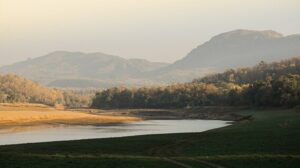Abstract/Description
Mountain farming in New Zealand’s hill and high country faces increasing pressures from climate change, market volatility, and regulatory constraints. While these challenges threaten traditional practices, resilience emerges through strong social networks, adaptive land management, and diversified income strategies. This study applies a process-relational perspective to resilience, emphasizing the continuous reconfiguration of social, ecological, and economic interactions that enable persistence, adaptation, or transformation. Findings highlight that farmers leveraging cooperative networks, knowledge-sharing, and diversification—such as agri-tourism, viticulture, and regenerative agriculture—exhibit greater resilience. However, regulatory constraints and financial barriers limit their capacity to scale adaptive strategies. Values-based supply chains, while promoting sustainability, remain vulnerable due to labor intensity and economic precarity. Moreover, conservation policies often conflict with farming realities, challenging the identity of farmers as land stewards.


